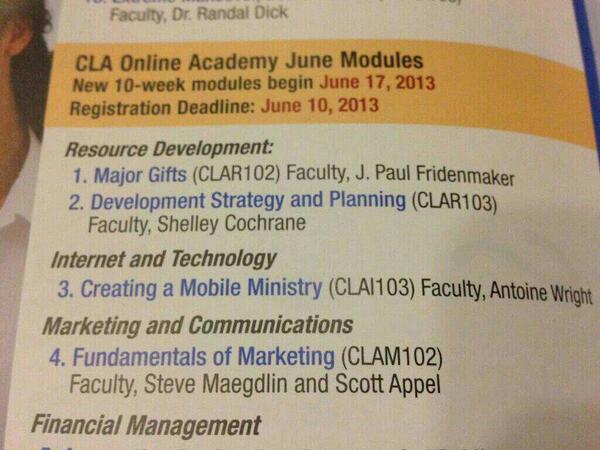
In the coming weeks, MMM will be heading to the ICCM USA Conference in Taylor, Indiana. And as with the last two conferences, the focus on mobile makes for a decent opportunity to share insights and forward areas of discussion. For example, a conversation at ICCM last year led to the acquisition of a Nokia N950 and a few conversations on open source technologies used on the mission field.
At this coming ICCM event, MMM will be in the mix for at least three of the mobile sessions happening, and given their topics, it should make for some interesting pathways forward.
The first talk MMM will be in on is called The Theology of Mobile Ministry. Here’s its abstract:
The speed of acquisition and use of mobile devices presents a sociological argument for understanding mobile ministry. The emphasis on services and applications presents the technological arguments we are already well familiar with. This presentation will present some of the theological points for understanding and engaging mobile ministry.
A theology-first discussion on mobile tech? Yup. And I’m hoping that it will lead towards an opening of tech and faith discussions on this wise outside of the academic community. This is a topic designed to fit alongside our goals for 2013, so this conference probably won’t be the only one that this information is shared.
After that session, MMM will be leading a panel discussion on the subject of BYOD (Bring Your Own Devices) and what that means for your ministry. This isn’t totally a new topic (think: laptops), but it has caught all kinds of positive and negative press because what it has meant towards IT teams supporting efforts, folks on the field making evangelistic efforts, and ministry leaders who want to stay on top of keeping all of this activity cohesive.
The third and final topic that MMM will be facilitating is a mobile workshop titled Sharing Content FROM Your Mobile.
The challenge for many ministries who want to go about using mobiles in ministry is that the practice of sharing info when on the field doesn’t match what’s done at home. This will be a workshop demonstrating methods of how to share content from mobile devices using several conventional and unconventional methods. Attendees will be active participants and all will be required to use some kind of mobile device during this session.
Now, this seems like it would be one of those easy topics, but the audience attending ICCM works in places where doing something like attaching a file to email, sending a Dropbox link, or even throwing up a server, just doesn’t make sense. Where the wrench happens here is for those groups who are ministering in communities which already have a significant mobile base who is sharing content, but they don’t know how or what’s going on. This workshop will have folks learning how to share content from their devices right in the session, with some notes about what’s happening in the ministry space around them.
At this point, I do have to apologize if you’ve not heard of ICCM before and this is a conference that you want to attend (were you not subscribed to the #mobmin Calendar). Registration is closed. We’ll do our best to make sure the presentation decks to hit the site right around the time the presentations happen on our end. You will want to stay tuned to the ICCM website and its social media hubs for other presenters’ decks.
About ICCM
The International Conference on Computing and Mission (ICCM) is an annual informal (NOties allowed) gathering of women and men who have
a common interest in computers and mission. We share a vision of cooperation for effective use of technology, bringing the Gospel to every nation.
This conference has been going on for almost 25 years, and from what I understand from those who have been there many times, its always a point of not just hearing something new, but being refreshed towards ministry efforts personally, in family, socially, and in organizations. Yea, there’s a helping of geeks whom are there, but its always quite friendly no matter where you are technologically.
One thing that I will note, just in case you miss this one and want to come to another. ICCM is a family-friendly conference. Meaning that there are several attendees who bring their kids along (a couple on the planning team brought their new addition to the conference last year). I’ve noticed that there are women-only sessions, there was a psychologist there last year to help with personal/internal items, and there’s always a section of the time devoted to prayer in small groups and community worship. Its indeed not a normal conference, and at the same time, its how the Body connects with itself.
For more information, including conference information about the Europe and Australia editions of ICCM, visit their website. And if you will be there in June, I look forward to connecting with you there.











